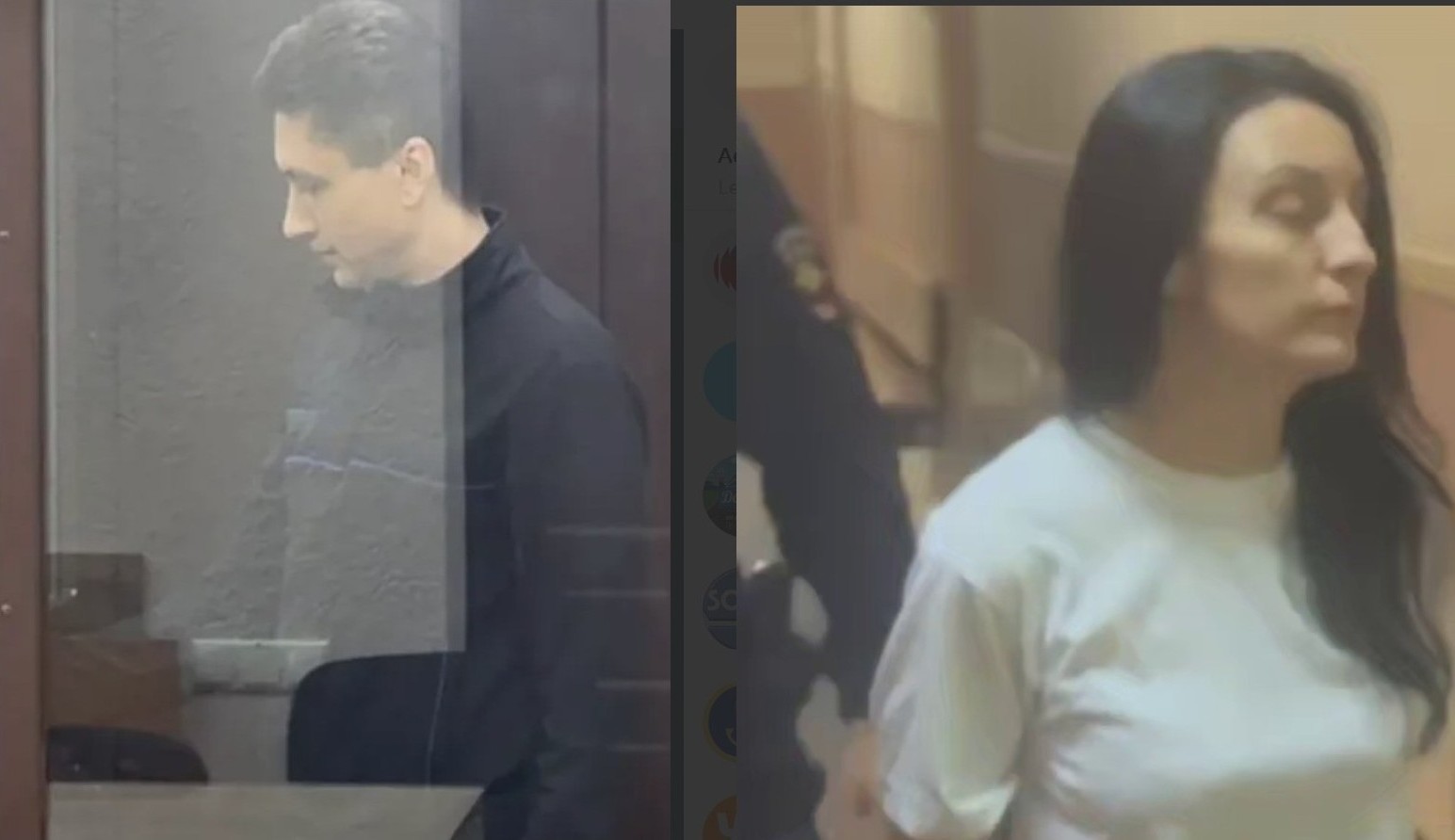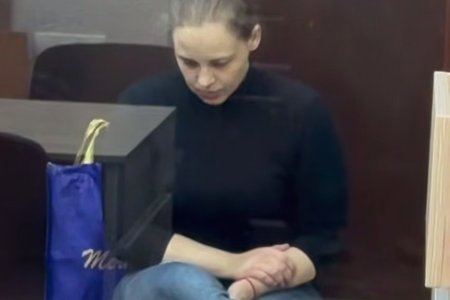
Russia has used an illegitimate ‘court’ in occupied Luhansk oblast to sentence two Ukrainians: 40-year-old Lina Smirnova and Artem Matvieiev (also 40), to 16 and 17 years, respectively, on cynical ‘spying’ charges. All of these conveyor-belt ‘trials’ seem aimed at terrorizing the population, not least because the victims are charged over conversations or messages which most Internet users would assume were confidential.
Lina Smirnova
The 16-year sentence, reported on 5 September 2025, was passed by an unnamed ‘panel of ‘judges’ from the occupation ‘Luhansk people’s republic high court’. It is quite possible that this was the only hearing.
40-year-old Lina Smirnova, who is from Rovenki in Luhansk oblast, was charged with ‘spying’ under Article 276 of Russia’s criminal code, with the prosecution supported by Sergei Pankratov, described as deputy prosecutor of the so-called ‘Luhansk people’s republic’ [‘LPR’].
It was claimed that Smirnova’s “crime against the constitutional order and security of the state” had been committed from December 2022 through May 2023, when she is supposed to have voluntarily gathered information about the places of deployment of Russian military personnel in ‘LPR’. She had allegedly passed on this information to Ukraine’s Security Service via Internet Messenger/
The ‘court’ report says that “during the court hearing”, Smirnova had “partially admitted guilt and explained that she had told her sister during private conversations and had not known that the information would be passed on to Ukraine’s Security Service”. The report claims that the “evidence” disproves this.
In a video, which Smirnova was, very likely, forced to make, she says that her sister was in Kyiv, that she was in a panicky, hysterical mood and that Smirnova felt sorry for her. The sister had asked her to write the information (about where the Russian solders were deployed and lived) and had communicated this to a Ukrainian defender with whom she was corresponding. It turns out her sister didn’t feel sorry for her, she concludes in this monologue which she may well have been forced to learn off by heart.
In no other way, is this significantly different from a huge number of other conveyor-belt sentences on ‘spying’ charges (under Article 276 of Russia’s criminal code, or ‘treason’ under Article 275 (if a person has the Russian citizenship without which it is virtually impossible by now to live on occupied territory). The sentences are horrific, with the only difference between those imposed on men or women being that ‘medium-security prison colonies’ are the harshest in the case of female political prisoners. Judging from the details given by Crimean human rights defender and political prisoner Iryna Danilovych, the conditions are horrific, and the treatment they receive “Gestapo-like”.
The fact that Smirnova is accused of ‘spying’ until May 2023 and does not have Russian citizenship may mean that she was abducted in the middle of 2023, and has therefore already been imprisoned, quite possibly without any formal status) for over two years. Such periods where a person Is held incommunicado are typically used to extract ‘confessions’ through torture and / or psychological pressure and threats.
Artem Matvieiev
40-year-old Matvieiev was also accused of having gathered and passed on the same information about the Russian invading forces, with this alleged to have been in January 2023. It was claimed that Matvieiev, who is from occupied Sukhodilska, had “via visual observation and memorizing, had gathered information of a military nature and had passed this, in the form of a graphic map, noting coordinates and with text comments”, supposedly for Ukrainian Military Intelligence.
He was sentenced, also on 5 September 2025, by the same illegitimate ‘LPR high court’ to 17 years in a maximum-security prison colony.
Both ‘court’ reports end with the same paragraph essentially encouraging denunciations, stating that a person is not charged with ‘spying’, ‘treason’ or some others if they voluntarily provide ‘the authorities’ with information enabling them to prevent “damage to the interests of the Russian Federation”.



